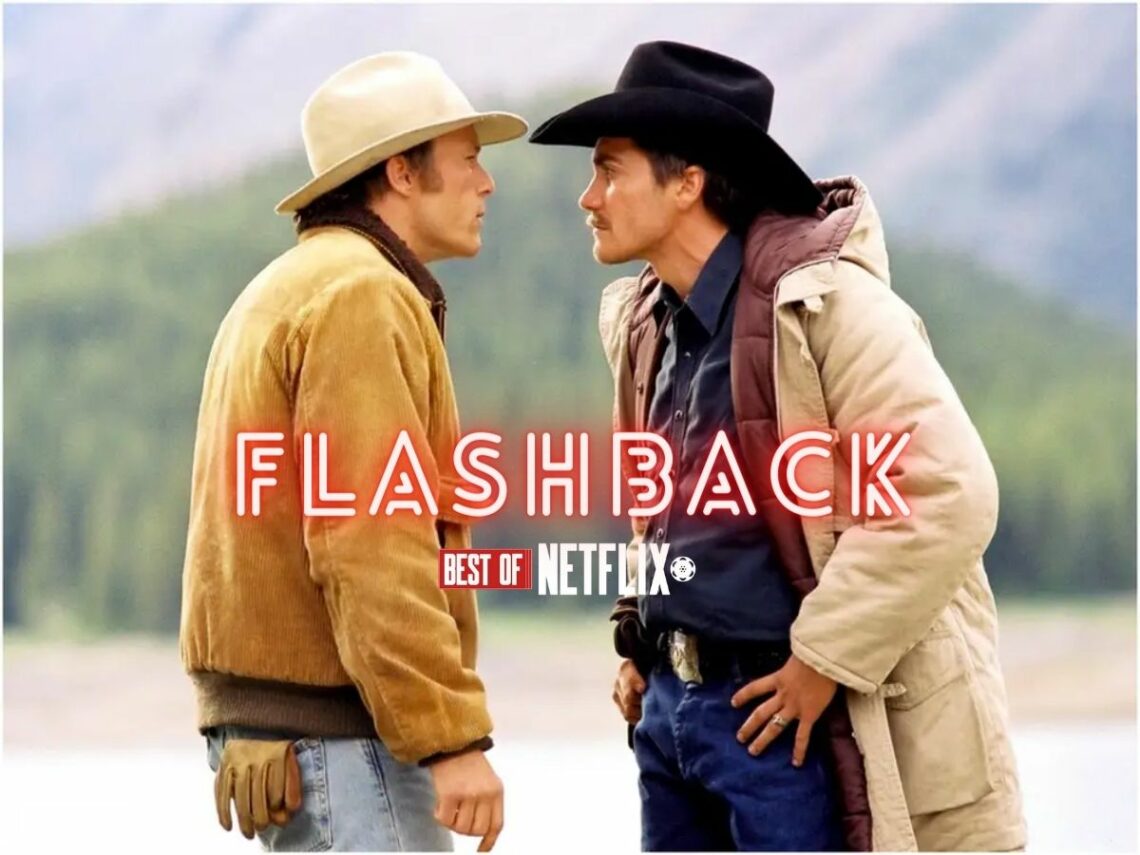There are thousands of movies to watch on Netflix, and the choice can sometimes leave you feeling a little intimidated. This often means that rather than digging into the reams of classic films on the streaming service, we pick the first feature film offered to us. That’s why we’re using Netflix Flashback to bring you some of the most iconic movies on their cyber shelves.
Back in 2005, queer cinema was sadly not given the spotlight that it enjoys today. However, one film released during this period that helped give LGBTQ+ movies a push into the line of sight of the mainstream audience was Brokeback Mountain. The movie certainly had an air of virality about it, and bear in mind that 2005 was just about the cusp of the advent of the major social media boom, so much of the viral conversation surrounding the work was made by word of mouth.
In fact, word of mouth was certainly the conduit for the film’s popularity amongst younger generations at the time, as school environments were a far cry from the trans and homo-positive mood of the lunchtime playground of today. As such, whenever Brokeback Mountain came to the surface during a discussion, it was usually used as an insult.
However, perhaps under the surface and beyond the homophobic rhetoric and fearful masculinity of young boys, Brokeback Mountain was working its magic and was subverting that longstanding narrative of heterosexuality. The film showed, in many ways, the superficiality of a “dominant” heterosexual identity is meaningless when it is removed from the heteronormative restraints of society.
Many of us were simply raised straight, you know. And where else was that more evident than in the mainstream cinematic medium in which pretty much every romantic and sexual relationship was between a white man and a white woman? The racial landscape of cinema has changed since the mid-2000s as well, after all.
So in many ways, although it is pretty tame in its explicit homosexuality, Brokeback began to buck the trend. For those who may not have seen Ang Lee’s film, it concerns two American cowboys (played by Heath Ledger and Jake Gyllenhaal) who begin a complex romantic relationship out on the trail in the American West between 1963 to 1983. The film was adapted from a short story by Annie Proulx of the same name.
Given the period and location of the film and its characters’ professions, much of it revolves around the cowboy’s concern over whether or not their homosexuality is OK. And of course, as alluded to above, even back in 2005, shockingly, homosexuality was still not wholly acceptable in the eyes of many, still perceived through a lens of ‘otherness’, and archaic values were still permeating the contemporary social outlook.
So while some accused Lee of Brokeback Mountain “straight-washing” queer cinema, perhaps that is missing the point of the film’s importance, for something had to change within society’s moral views. This was the 21st Century, after all. Despite Brokeback Mountain being used initially as an insult – particularly amongst male children and most likely fully grown idiotic straight men – it was an essential piece of work that began to normalise the existence of homosexual relationships, which is just odd to think that that ought to have been a necessity in 2005 in the first place.
Professor B. Ruby Rich said of the film’s influence (via Vice): “I don’t want to underestimate the extent to which Brokeback did its work because it really did [work]. It changed attitudes across generations. It was obviously extremely powerful among gay men, but it was also unimaginably transformative for people in rural areas outside of major metropolises.”
“Brokeback was really something of a corrective,” she added. “It’s almost a historical film from the start of an emerging movement, frankly. And I think its work was done in the years following it.” After all, queer cinema had existed for several decades before Brokeback. Still, that simple push into the mainstream perhaps occurred from the film’s ‘shock factor’, which is hilarious because Brokeback is an extraordinarily straight gay film.
“By now, it’s been so totally absorbed in pop culture that it might not be an active influence in the same way,” Rich noted. “But having said that, there might be a kid in the middle of the country discovering it right now as we’re talking. So it’s probably still a lifeline.” Brokeback remains an excellent film in its own right, not merely as an exposition on the difficulty of embracing homosexual love in a hetero-dominant landscape but as a rich and moving love story regardless of the sexuality of its characters.
Watch Brokeback Mountain on Netflix now.
